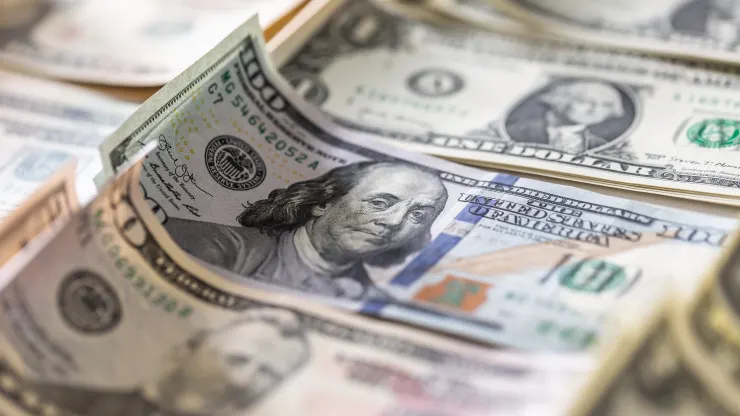
The dollar fell broadly on Thursday after the U.S. Federal Reserve maintained its interest rate cut projections for the year in the face of upside surprises on inflation, and did not strike a more hawkish tone as some investors had feared.
The Australian dollar jumped after data on Thursday showed employment rebounded sharply in February and the jobless rate dived far below forecasts, pointing to a still-tight labor market there.
The Aussie was last 0.33% higher at $0.6608, after having risen more than 0.4% to a one-week top of $0.6615 in the wake of the strong jobs data.
At the conclusion of the Fed’s policy meeting on Wednesday, Chair Jerome Powell said recent high inflation rate readings had not changed the underlying “story” of slowly easing price pressures in the U.S. as the central bank stayed on track for three rate cuts this year, even though it projected slightly slower progress on inflation.
That knocked the greenback lower as traders were quick to rebuild bets of a Fed easing cycle beginning in June, with markets now pricing in a 75% chance of a rate cut that month, as compared to 59% chance a day ago, according to the CME FedWatch tool.
The euro and sterling were among major currencies that notched one-week highs against the dollar on Thursday, rising to $1.09375 and $1.2798 respectively.
“The Fed really, really wants its soft-landing ending. Stronger growth, lower unemployment, higher inflation – and yet still no change to the median dot,” said Seema Shah, chief global strategist at Principal Asset Management.
“Powell has perhaps shown his cards: he needs a good reason not to cut rates, rather than a reason to cut rates.”
The dollar index was flat at 103.23, after having slid more than 0.5% in the previous trading session.
With the Fed meeting out of the way, focus now turns to a rate decision from the Bank of England, or BoE, later on Thursday, where expectations are for the central bank to keep rates on hold.
British inflation slowed in February, official data on Wednesday showed, keeping the BoE on track to start cutting borrowing costs later this year.
“This should give the (Monetary Policy Committee) confidence to run back February’s messaging … with a largely unchanged rate statement, which in the context of further disinflation progress, should on balance be seen as marginally hawkish by markets,” said Nick Rees, FX market analyst at MonFX.
Elsewhere, the New Zealand dollar was last 0.08% higher at $0.6087, though gains were capped by domestic data showing New Zealand’s economy shrank slightly in the fourth quarter, putting the country into a technical recession.
The yen rose 0.4% to 150.63 a dollar, after having slumped to a four-month trough of 151.82 in the previous session and toward a multi-decade low.
Despite the Bank of Japan’s, or BOJ, landmark shift away from negative interest rates earlier in the week, policymakers signalled that “accommodative financial conditions” were expected to be maintained for some time.
That gave investors confidence to rebuild positions in the popular yen carry trade as stark interest rate differentials between Japan and the U.S. were likely to stay for some time, which in turn sent the currency sliding.
“Given that the BOJ tightening cycle is unlikely to be aggressive, the Japanese yen could remain under pressure until the Fed changes course,” said Charu Chanana, Saxo’s head of FX strategy.





























